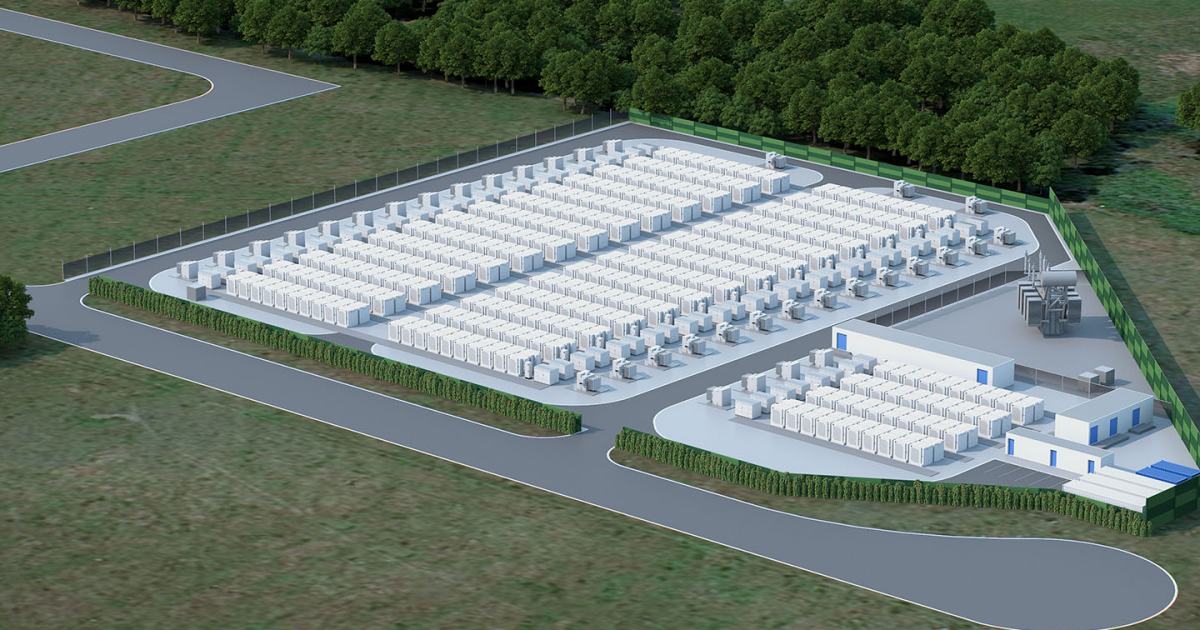Australian “Big 4” bank Westpac announced yesterday it’s one of the lead financiers for the delivery of Victoria’s huge Rangebank Battery Energy Storage System (BESS).
Late last month, Macquarie Asset Management’s Green Investment Group (GIG) and Shell Energy Operations (Shell Energy) announced they were teaming up on delivering a major battery project, which will be a 200MW / 400MWh BESS installed on a two-hectare site within Rangebank Business Park in Cranbourne West; around 43 km south-east of Melbourne’s CBD.
“Located in one of Melbourne’s fastest-growing population centres, the Rangebank BESS will help to stabilise Victoria’s state electricity supply by providing additional storage capacity which can be discharged at times of peak demand,” said Shell Energy Australia Chief Executive Officer Greg Joiner.
Through an offtake agreement, Shell Energy will have access to 100% of the battery’s offtake over a 20-year period. The Rangebank BESS will be built and maintained by Fluence, utilising Fluence’s sixth generation Gridstack energy storage technology.
All going well, construction is set to commence this quarter. The project has all its ducks lined up; with land, development approvals and financing secured. Among the financiers is Westpac.
“We are very pleased to be a lead financier for the delivery of this important energy infrastructure, which is a critical component in delivering both a de-carbonised and stable energy sector,” said Westpac Institutional Bank’s Head of Energy Infrastructure and Resources, David Scrivener yesterday.
Westpac And Renewables
Westpac claims to be the largest bank lender to greenfield renewable energy projects in Australia over the past five years to 30 September 2022, and says renewables accounted for 80% of the organisation’s total committed exposure to the electricity generation sector.
Westpac has been keen to be seen to be distancing itself from fossil fuels in recent years after ongoing pressure from activist groups such as MarketForces, which focuses on helping people keep their money out of environmentally destructive projects. In July last year the bank announced further commitments to reduce its lending portfolio emissions intensity and had previously announced it would exit financing the thermal coal mining sector entirely by 2030.
As well as supporting renewables through finance, Westpac has been looking at cleaning up its own energy supply.
Back in 2019, the bank pledged to source 100 per cent of its electricity from renewable sources by 2025 and also joined the RE100 program, which is a global initiative bringing together major businesses pursuing 100% renewable electricity.
Since that time, Westpac has inked several significant power purchase agreements for clean electricity. These involve Bomen Solar Farm near Wagga Wagga in New South Wales, Ararat Wind Farm in Victoria and Berri Solar Farm in South Australia.
The agreement involving the latter two represents supply of up to 32.5GWh per annum. With that in place and the Berri solar project operational this year, Westpac expects to be sourcing the equivalent of 100% of its Australian electricity requirements from renewable sources by 2024 – a year earlier than its original target.


 RSS - Posts
RSS - Posts



Speak Your Mind